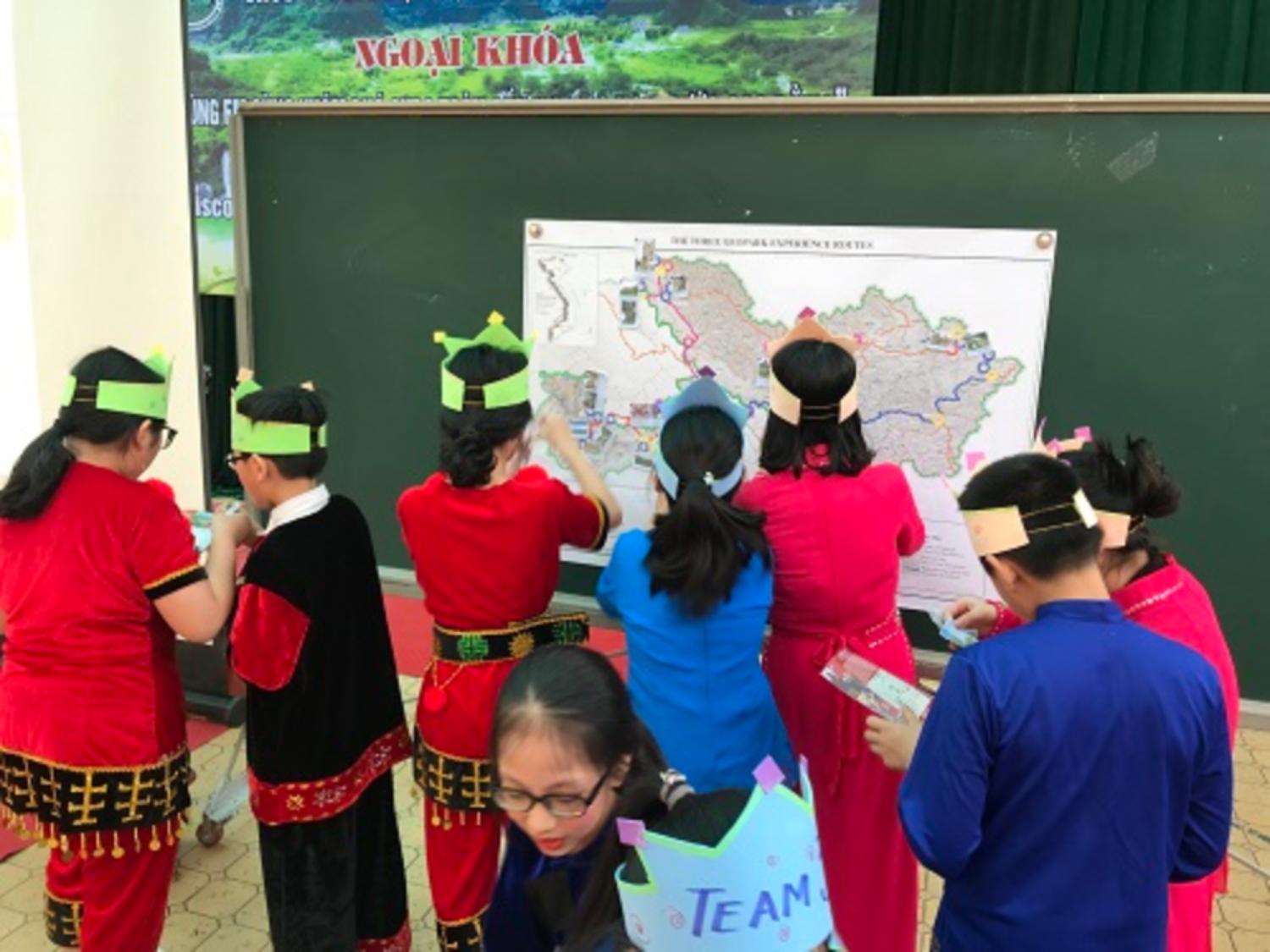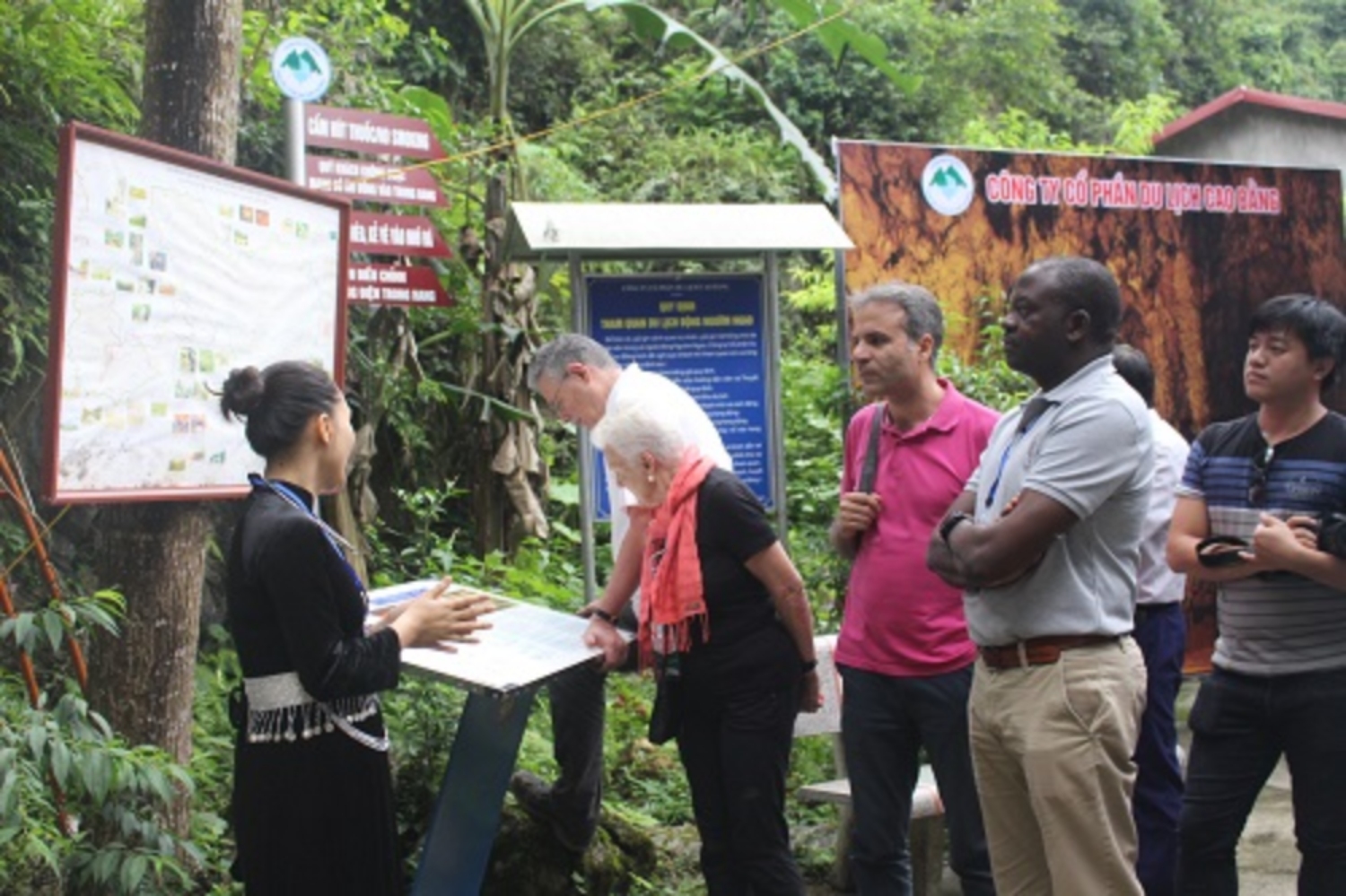UNESCO global geopark model and educational activities
- Tuesday - 21/12/2021 15:37
- Close page
It is a pre-requisite that all UNESCO Global Geoparks develop and operate educational activities for all ages to spread awareness of our geological heritage and its links to other aspects of our natural, cultural and intangible heritages. UNESCO Global Geoparks offer educational programs for schools
or offer special activities for children through “Kids Clubs” or special “Fossil Fun Days”. UNESCO Global Geoparks also offer education, both formal and informal, for adults and retired people while many provide training for local people who can then, in turn, teach others (UNESCO).

UNESCO global geopark model can make a major contribution to informal and formal education by sharing their accumulated scientific, historical and cultural knowledge, skills and values with visitors of all ages. In the broadest sense, geoparks are centres for informal education providing tourists with informative and enjoyable experiences which enhance their appreciation of the landscape and culture. They also create an understanding of the need to manage access to popular sites in order to minimize damage to the environment and preserve the natural and geological heritage for future generations. Geoparks also serve as outdoor laboratories for formal, traditional education and research in which the main target groups are schoolchildren and university students. These educational activities can enhance the transferable skills of individuals and thus contribute indirectly to their social and economic prospects.

The informal communication of knowledge is an activity common to all geoparks. Exhibitions in information centers and local museums usually tell the story of the Earth’s history and chronicle the geoparks’ geology, natural history, archaeology and culture through panels and visual images, sometimes accompanied by books and leaflets. For example, Non nuoc Cao Bang geopark developed a system of information panels along the experience routes to main tourists’ sites to help visitors understand about the traditional cultures, history and geological formation of the area. Terra, Vita Geopark, Germany, for example, reconciles the interests of tourists and scientists by using the concept of stage design for exhibitions in its Information Centre. This geopark is also investigating the potential for using the high–tech treasure hunting game geocaching as a new approach to encourage visitors to learn about the landscape. The exhibition area in the headquarters of Luberon Geopark, France, enables visitors to appreciate its landscape and geological history and to understand the necessity for conserving the Earth’s heritage preserved in rocks, fossils and minerals.
Through the highlight on their unique geological heritage, geoparks attract geotourists who wish to develop their knowledge and appreciation of the geology and geomorphology of a territory. Catering for this special interest requires the design of websites with detailed geological and geomorphologic information, and the production of leaflets, guide books and panels interpreting geosites and enabling geotourists to enhance their knowledge through onsite experiences. Geotourists can also get a sense of the significance of geosites within a wider context by following geotrails and reading geological maps in accompanying guides to the landscape, e.g. Exploring the Landscape of Assynt, a walkers’ guide to the North West Highlands Geopark, Scotland. Non nuoc Cao Bang geopark develop a system of directional panels to guide the experience of geopark for visitors. Sobrarbe Geopark, Spain, provides ‘clues’ along cycle trails which allow the geotourist to reconstruct the geopark’s geological history. However, even if geosites are interpreted with geotourists in mind, other visitors to these sites cannot fail to be fascinated to learn that they are standing in landscapes which may have in the past, as revealed by their geology, been situated in different latitudes, climates and environments or exposed to high temperatures, pressures and deformational forces several kilometres below the surface.
In addition to providing interpretational tools for geotourists, geoparks also cater for a wide range of tourism interests, including ecotourism, cultural history, archaeology and industrial archaeology. Serving these interests also requires the provision of illustrated, subject specific leaflets, site specific panels or the inclusion of non geological information and interpretation in panels erected at geosites.
In the field of formal education, geoparks provide ideal destinations for school and university courses requiring experiences in field work. They are also providers of materials and services to school teachers and can serve as vocational training centres. For instance, Cardiff University uses Forest Fawr Geopark, Wales, for training Environmental Geoscience students in geological mapping and analyzing water quality in streams. The Geopark Swabian Alb, Germany, describes a programme in which high school pupils chose two geosites for which they developed and designed panels. This is an example of pupils acquiring transferable skills through research, the collection and selection of data, interacting with staff from the University of Tübingen and engaging with communities, property owners and authorities involved in conservation within the geopark. In Portugal, the concepts of geosites and geological heritage are embedded in the school curriculum and modules on geoconservation are delivered in the undergraduate degree courses of several universities. The significance of the water cycle in groundwater transport and extraction provides geoparks with an attractive multidisciplinary topic for environmental education.
The development of UNESCO global geopark model does not only focus on conservation and tourism development for local socio-economic development, but it can function as centers for formal and informal education to provide students and visitors of all ages with learning opportunities and knowledge. So far, the UNESCO global geopark has been function well to facilitate it through their investment into the development of informative experience tours to meet the needs of visitors and students. For further improvement of the geopark model, it is necessary to develop and strengthen cooperation among Geoparks, tour operators and education entities, especially those are operating the geopark territory.
Tran Thuy